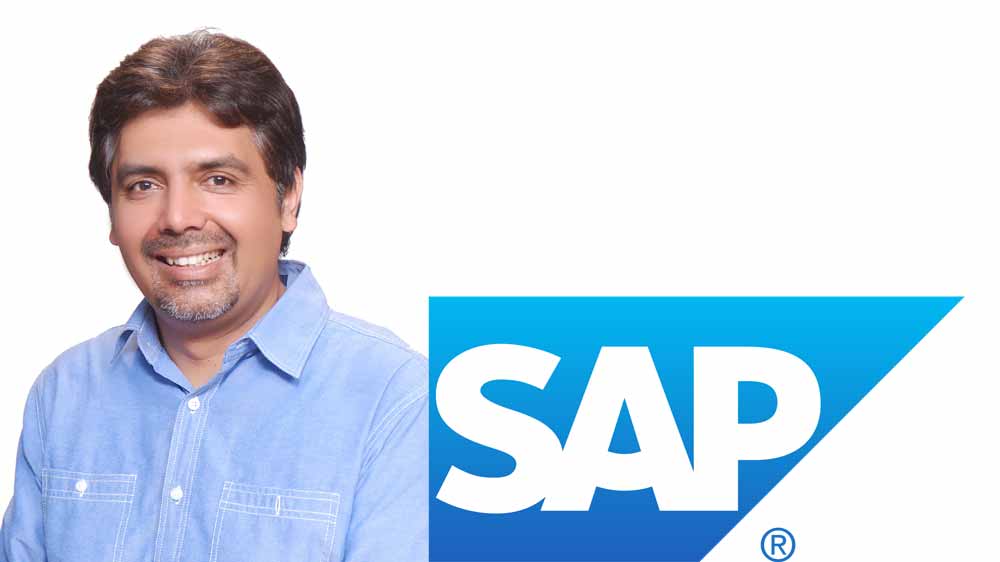This year, 2018, is the decisive moment for Pakistan’s organizations to embrace digital transformation to optimize costs, meet citizen and customer needs, scale up using the power of the cloud, and ultimately disrupt the field to gain business competitiveness and market share. Every industry vertical is looking to embrace emerging technological innovations such as artificial intelligence, blockchain, machine learning, and Internet of Things.
“Digital leaders”, which are the early adopters of these technologies, expect 23% more growth by 2019, and already have 85 percent of market share and 80 percent of profitability versus competitors. However, while 84 percent of organizations say that digital transformation is critical, only 3 percent have completed digital transformation, according to the new SAP and Oxford Economics Digital Transformation Executive Study.
SAP wants to be at the forefront of the digital revolution. In fact, the multi-national enterprise software corporation founded by Hasso Plattner, Klaus Tschira, Claus Wellenreuther, Dietmar Hopp, and Hans-Werner Hector in 1972 has already transformed the way companies and institutions make use of today’s digital technologies to solve tomorrow’s problems.
ProPakistani recently sat down with Saquib Ahmad, Managing Director for SAP Pakistan. Mr. Ahmed is leading SAP’s support for organization-wide and nationwide digital transformation, aligned with Pakistan Vision 2025 and the China Pakistan Economic Corridor. We heard his thoughts about SAP is helping Pakistani firms in the private and public sectors to become future-proof.
ALSO READ
Pakistan Vision 2025 Drives Future Cities Growth
“Pakistan is a strategic growth market for SAP, and we are exchanging global best practices in using real-time technology to deliver clean, safe, and competitive cities. Saquib Ahmad has the experience, leadership, and disruptor vision to drive public-private partnerships that support Pakistan Vision 2025,” said Gergi Abboud, Managing Director for the Gulf and Pakistan at SAP.
Q. Tell us about yourself. And how you eventually ended up at SAP.
I come from a middle-class family in Lahore. I studied electrical engineering from the University of Engineering and Technology, graduating with full honors in 1997.
I was noticed by Siemens in those early days, who sent me to Germany for a specialized training program. After 2 years of training, and working for Siemens in Spain as well, I finally returned to Pakistan.
For the next several years, I was associated with Siemens in both Pakistan and the Middle East. I started working with IT company Comptel, and stayed involved with it for four and a half years. During this time, i was able to build a brilliant and dedicated team that ensured the company’s success.
I then joined and worked at Oracle for a year, finally moving to SAP as their country manager for Pakistan.
Q. Can you tell us about what services SAP provides in Pakistan and how many people you employ currently?
For over 18 years, SAP has been working in Pakistan, simplifying people’s lives by with the right applications and software.
SAP Pakistan provides services to textile, telecommunication, automobile industry, health, education, utilities, power generation, defence, aviation and banking sectors, and more.
Issues related to distribution, supply chain, human resource management and many others, all benefit from SAP’s customized suite of software products.
The company directly & indirectly employs, through partners and customers, as many as thousands of people all across Pakistan, given its regional offices across all main cities in Pakistan.
Q: What technological fields and areas are most likely to see increased investment in the next two years?
Our survey shows that these technologies will see the highest Middle East and North Africa investment in 2018-2019:
- Big Data and Analytics: More than 80% of Top 100 Digital Leaders, More than 60% of MENA organizations
- Cloud: More than 70% of Top 100 Digital Leaders, More than 60% of MENA organizations
- Internet of Things: More than 50% of Top 100 Digital Leaders, More than 50% of MENA organizations
- Security: More than 50% of Top 100 Digital Leaders, More than 50% of MENA organizations
As a market leader in enterprise application software, SAP (NYSE: SAP) helps companies of all sizes and industries run better. From back office to boardroom, warehouse to storefront, desktop to mobile device – SAP empowers people and organizations to work together more efficiently and use business insight more effectively to stay ahead of the competition. SAP applications and services enable more than 378,000 business and public sector customers to operate profitably, adapt continuously, and grow sustainably.
ALSO READ
Creating Momentum for Digital Transformation In Pakistan
Q: Can you mention Pakistani firms that have transformed the way they do things with the help of SAP’s technological tools?
SAP already co-innovates with many of Pakistan’s leading public and private sector organizations, including:
- Controller General Authority (CGA) has one of the world’s largest SAP-based public sector implementations of a management integration system. CGA processes the monthly salaries and pensions of nearly 3 million public sector employees and pensioners, with SAP Business Objects running on SAP BW/4HANA and SAP HANA.
- Fauji Fertilizer Company, with S/4HANA, showcases best practices in Internet of Things to transform agriculture. FFC has successfully woven intelligent capabilities into market-leading Business Suite system platform to facilitate enterprise-wide innovation. The aggressive use of data is transforming business models, facilitating new products and services, generating greater utility, and ushering in a new culture of management.
- Lucky Cement, one of Pakistan’s largest producers and experts of cement, with S/4HANA, has gained real-time visibility on supply chain, financials, customer delivery.
Q: What makes your product, service or company different from the competition?
SAP’s company growth is driven by the SAP HANA in-memory platform that makes lightning-fast data analytics a reality. Strategic acquisitions and innovation make SAP a leader in cloud computing and e-commerce business networks. With the launch of SAP S/4HANA, SAP has unveiled the next generation of enterprise software with a new real-time business suite.
The recently-launched SAP Leonardo digital innovation system is bringing together deep process and industry expertise, advanced design thinking methodology and cutting-edge software capabilities such as IoT, Big Data, Machine Learning, Analytics, and Blockchain.
Q: What do you think Pakistan needs to do to tackle rising unemployment rates and reverse the flight of invaluable human resources?
Almost every other year, brilliant Pakistani students achieve international fame by breaking academic records and getting top positions in various exams. The main issue is how to utilize the enormous talent of our youth. This is only possible by providing them suitable opportunities both at home and abroad, in the public as well as private sector.
Realizing this all-important issue, we have launched a number of career building and training initiatives, specifically targeting or brilliant and talented youth. As part of one such program, each year, we send some youngsters to the United States for 6 months training, after which, they come back and become a part of Sap’s ecosystem. In the same way, we have a 3-month training program, after which, trainees are accommodated into the industry, according to their talent. To make sure that we get the best talent for nurturing, we remain constantly in touch with the Higher Education Commission and all major universities of the country.
Q: Biggest challenges that you’ve come across during your association with SAP?
One of the biggest challenges for us is to be fully aware of the challenges faced by all industries, because only then we can assist them the best possible way.
Additionally, due to the generalized education imparted in most of our educational institutions, we find it extremely difficult to find specialists, having specific skills.
Another challenge is that with the rapid transformation of technology, we are also faced with the daunting task of transforming the mindset of the people as well.
Q. What do you think about entrepreneurship in Pakistan?
The internet has broken all barriers of space and provided unlimited access to entrepreneurs, who can advertise their products anywhere, anytime, without having to go there.
This global reach has virtually ended the traditional difference between towns and villages, developing and developed countries. Pakistan is also no exception to that. Pakistani youth also have a tremendous opportunity to use social media for the promotion of their entrepreneurial initiatives.
To hear more from Mr Saquib Ahmad regarding his insights on Pakistan’s digital future, check out the SAP NOW Pakistan roadshow. The event is bringing together hundreds of Pakistan’s most innovative C-suite executives to hear about the latest digital business trends, and experience innovative demos.


























Considering that is a sponsored article, this is just marketing hype by SAP. Oracle and SAP are the two main ERP players globally. However, SAP and Oracle are too expensive for SMEs in Pakistan. Only large corporations with big IT budgets can afford to pay for their ERP solutions.
For SMEs, there are better ERP options in open source such as Odoo. This is the era of open source now instead of closed source solutions. Odoo is open source business software including CRM, e-commerce, billing, accounting, manufacturing, warehouse, project management, and inventory. Odoo has an online demo also.
Very rightly said. The named ERPs rip off businesses even before kickoff!
Well you can also see some local solutions as honeycombERP developed by Digital Research Labs. When it comes to manufacturing both oracle and SAP lack any detailed insight without their expensive add-ons. Also the direction of these giants is not aligned with needs of Pakistani market so solutions such as honeycombERP can fill in the huge gap that exists in the market.
In the interview, Saqib says that “…..finally moving to SAP as their country manager for Pakistan.” However, the title incorrectly says Managing Director.